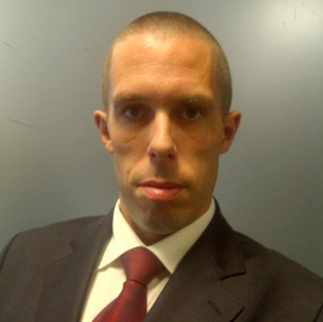The Hotel Security Manager (HSM) is the focus here by Stuart Grainger-Smith, pictured, the safety and security manager at Amba Hotel Marble Arch. And what’s the relationship between: training, knowledge, regulation and professionalism?
About the writer: A member of the Security Institute, and International Institute of Risk and Safety Management, Stuart has a master’s degree from the University of Portsmouth.
This is an area that has had little academically written about it, as such a comparison will be with the health and safety sector; health and safety within hotels is more and more being undertaken by the security manager. With so many areas within security management to discuss and a role that has a width and diversity to it such as it has, understanding what training is, or needs to be in place is principal. Continuing from here is to then understand whether this role is indeed a profession or a service and correspondingly if the training standards are in place.
A number of people were questioned to understand view points and perspectives. Viewpoints were taken from three angles each looking at the hotel security manager, that of the managers themselves, the Human Resources managers and from a leading member of two of the largest security organisations; some key points came to light.
The first that all were agreed on is that there is a lack of recognition in the role. Alongside this the lack of a requirement to be qualified perpetuates this point. Furthermore it was understood that there was a lack of correlation with all the differing streams of certificates and qualifications available with little either being relevant or agreed as a preferred form of qualification. Hotel security managers, with a couple of exceptions, did not see the need for training as it was not required. The Human Resources managers also stated that qualifications were not a requirement within the recruiting process.
The second point or theme that came through is that qualifications in hotels were not required, needed or particularly sought after, to cite Shaw & Williams (1994, p 142) “uneducated, untrained and unskilled”. It was identified that to move the role onto a professional level would be something that needed to be addressed legislatively. It is also worth considering an alternative course to legislation that would see action more readily.
If all organisations like ASIS, The Security Institute and the Institute of Hotel Security Management did make it a requirement to be qualified to join them, then a precedent would be set that meant more people would be inclined to get qualified to therefore be able to network. As it stands these professional organisations do not require any qualification criteria, just your fee money.
The third point was the comparison with health and safety. Everyone identified it being within the security role. Human Resources felt that the two should be together although the hotel security managers sided against this, while they understood the inevitability of it. What did come through was that to be competent in safety you had to be qualified although security wanted to go further, onto professionalism without qualifying. This coincides with the interviews when only 50pc had further security training. Re-visiting the earlier point over competency it is therefore arguable that 50pc therefore would not stand up to that benchmark.
Finally, from all points of view, academics, hotel security managers, Human Resources managers and even the organisations themselves agree that the security industry is still without the structure that is required. Taking that back to specifics, the hotel security manager, this is certainly true. All areas be it health and safety or recognition refer back to this. However current requirement does not need or want people to drive for this as it directly affects the bottom line. The way forward starts when qualification becomes a prerequisite for associations and roles, and this can only be led from the top although driven throughout the ranks not just for managers.
There is a standard of training from the Security Industry Authority (SIA) for security staff however they do not enforce or regulate any further mandatory training once a person becomes a Manager aside from the low requirement in place. This compounds the issue, along with the lack of any standardized competency benchmark or Industry wide code of ethics. It therefore becomes inexplicable how, as an industry that did not meet the criteria when researched for the Rand Report, did not meet the criteria of professionalism and training when Button (2008) assessed it and why to date it still hasn’t. Certainly within the role of HSM this seems unlikely to change based on this research possibly it never will unless attitudes and mindsets change. Those that do seek to qualify and train do so at their cost and for little perceptible gain.
To move forwards therefore requires this paradigm to be reversed, unlikely when business is notoriously looking at the bottom line in all areas.
Button, Mark, (2008) “Doing Security : Critical Reflections and an Agenda for Change”. : Basingstoke, Palgrave Macmillan.
Shaw, G., Williams, A., (1994) “Critical Issues in Tourism: a geographical perspective”. Oxford: Blackwell.
For Stuart’s essay in full, visit https://professionalsecurity.co.uk/reviews/hotel-view/.










